Get Septic Inspection in Littleton, CO
Septic inspection services for Littleton, CO help property owners identify system issues, ensure proper functioning, and prepare for maintenance or future repairs with trusted local contractors.
If you own property in Littleton, CO, understanding the condition of your septic system is an important step in maintaining your home's functionality and avoiding unexpected issues. Septic inspections can help identify potential problems early, ensuring that your system operates efficiently and complies with local regulations. Whether you're preparing for a property sale, planning necessary repairs, or simply want peace of mind about your septic system's health, exploring inspection services is a practical move for property owners in the area.
To find the right support for septic inspections, it’s helpful to compare local contractors who specialize in this work. Many service providers in Littleton and nearby communities offer professional inspections to assess septic system performance and identify any concerns. Continuing to read can provide more information on what to consider when choosing a provider and how these services can support your property management plans.
- Septic System Inspection - needed when purchasing a home in neighborhoods with older septic systems in Littleton, CO.
- Routine Septic Evaluation - recommended for homeowners wanting to ensure their septic system is functioning properly.
- Septic Tank Assessment - essential if experiencing slow drains or backups in residential areas around Denver.
- Pre-Listing Septic Check - useful before putting a property in Highlands Ranch on the market.
- Troubleshooting Septic Issues - necessary when foul odors or pooling water appear near septic fields in nearby suburbs.
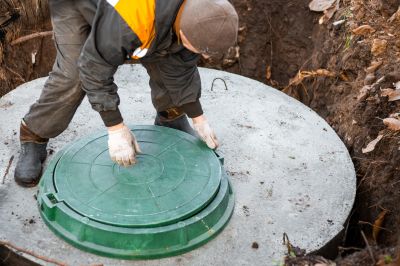
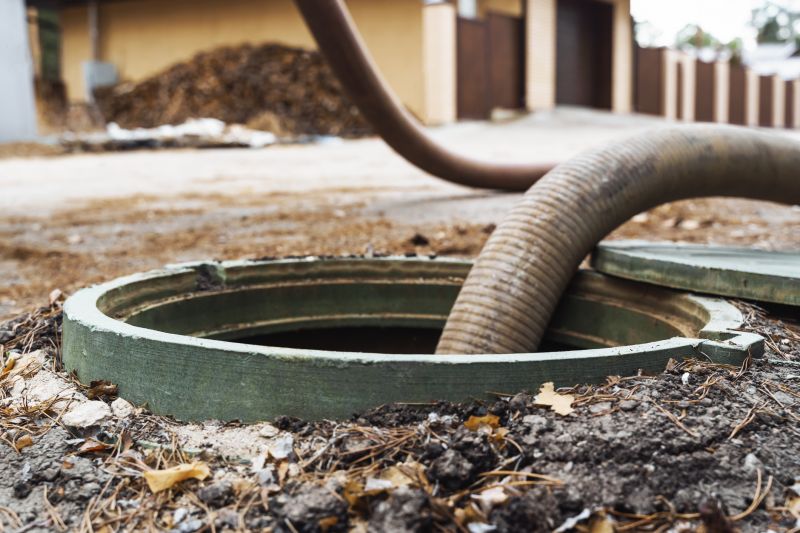
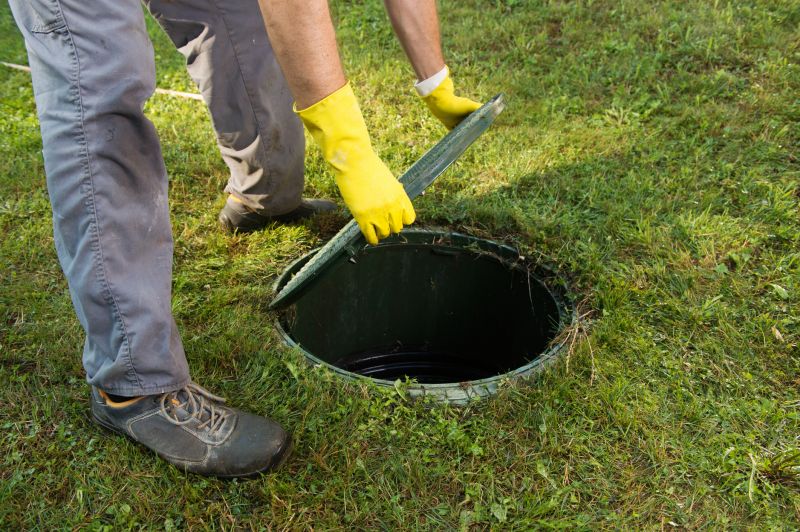
Septic inspection services involve a thorough evaluation of a property's septic system to ensure it is functioning properly and remains in good condition. During an inspection, a professional contractor will examine the tank, drain field, pipes, and other key components to identify any signs of wear, damage, or potential failure. This process often includes checking for leaks, assessing sludge levels, and verifying that the system is operating within safe and efficient parameters. Regular inspections can help detect issues early, preventing costly repairs and avoiding unexpected system failures.
These services are especially valuable for addressing common septic system problems such as clogs, backups, or foul odors. Over time, septic tanks can accumulate solids, or the drain field may become saturated or damaged, leading to slow drainage or sewage backups. Identifying these issues early through inspection allows homeowners to plan maintenance or repairs before more serious problems develop. Additionally, inspections can reveal signs of system deterioration caused by tree roots, improper usage, or aging components, helping to extend the lifespan of the septic system.
Septic inspection services are typically used for residential properties that rely on septic systems for waste management. This includes single-family homes, rural properties, and some small commercial buildings where municipal sewer connections are unavailable. Homeowners often opt for inspections when purchasing a property, as part of routine maintenance, or if they notice symptoms like slow drains, gurgling sounds, or sewage odors. Regular inspections are recommended for maintaining system health and ensuring compliance with local regulations, especially in areas like Littleton, CO, where septic systems are common.
By scheduling septic inspections with experienced service providers, homeowners can gain peace of mind knowing their waste management system is operating efficiently and safely. These inspections help prevent unexpected failures, identify potential repairs early, and support proper maintenance practices. Connecting with local contractors who specialize in septic services ensures that the work is done thoroughly and accurately, providing a clear picture of the system’s condition. Whether buying, selling, or maintaining a property, septic inspection services are a practical step toward responsible property management.
The overview below groups typical Septic Inspection projects into broad ranges so you can see how smaller, mid-sized, and larger jobs often compare in Littleton, CO.
In many markets, a large share of routine jobs stays in the lower and middle ranges, while only a smaller percentage of projects moves into the highest bands when the work is more complex or site conditions are harder than average.
Smaller Repairs - Typical costs for routine septic inspections in Littleton and nearby areas range from $250 to $600. Many standard inspections fall within this middle range, covering basic system checks and minor repairs.
Full System Inspection - Comprehensive inspections of septic systems usually cost between $600 and $1,200. Larger, more detailed evaluations are less common but may be necessary for older or complex systems.
Septic Tank Pumping - Pumping services generally cost $300 to $500 for most residential systems. Projects that require additional cleaning or access to hard-to-reach tanks can push costs higher, but these are less frequent.
Septic System Replacement - Replacing a septic system can range from $3,500 to over $7,000 depending on size and site conditions. Larger or more intricate installations, such as those involving advanced treatment options, can reach $10,000+ but are less typical.
Actual totals will depend on details like access to the work area, the scope of the project, and the materials selected, so use these as general starting points rather than exact figures.
Drain Field Inspection - local contractors assess the condition of drain fields to ensure proper function, similar to septic tank evaluations.
Septic Tank Pumping - professionals who perform septic tank pumping use related skills in inspecting and maintaining septic systems.
Septic System Repair - repair specialists diagnose and fix issues within septic systems, requiring similar planning and troubleshooting skills.
Soil Percolation Testing - experts conduct soil tests to determine absorption capacity, which is essential for septic system installation and inspection.
Septic System Installation - installation contractors design and set up new septic systems, involving planning and site assessment skills comparable to inspections.
Drain Field Replacement - local service providers handle drain field replacements, requiring knowledge of septic system components and site conditions.
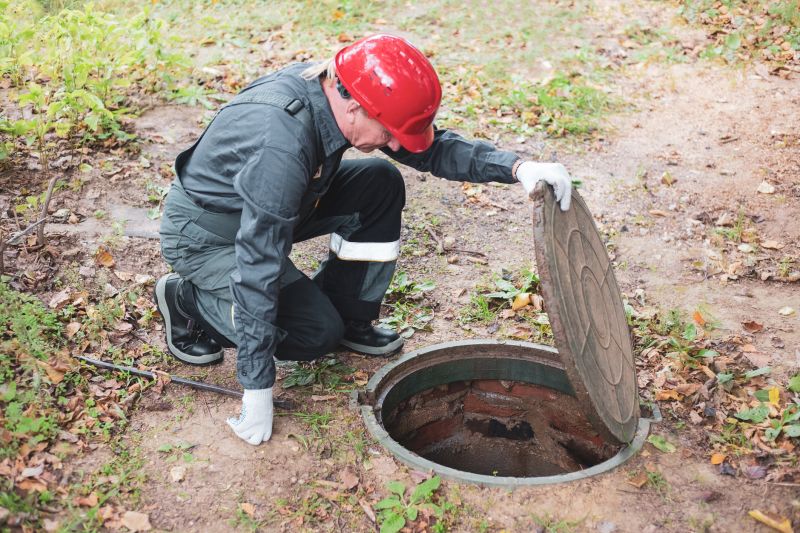
When evaluating septic inspection service providers in Littleton, CO, it’s important to consider their experience with similar projects. Homeowners should look for local contractors who have a proven track record of inspecting systems comparable to their own. This experience can indicate familiarity with common issues, local soil conditions, and relevant regulations, helping to ensure the inspection is thorough and accurate. Asking for details about past projects or areas of specialization can provide insight into a service provider’s expertise and confidence in handling septic systems similar to yours.
Clear, written expectations are essential when comparing local contractors for septic inspections. Homeowners should seek providers who can offer detailed descriptions of what the inspection will cover, including any testing or assessments involved. Having a well-defined scope helps avoid misunderstandings and ensures that both parties are aligned on the process and deliverables. It’s beneficial to request written estimates or checklists that outline the steps involved, so expectations are transparent before any work begins.
Reputable references and effective communication are key factors in selecting a reliable septic inspection service. Homeowners can ask local contractors for references from previous clients, especially those who had similar systems or projects. Good communication means the contractor responds promptly to questions, explains findings clearly, and provides guidance on next steps. While the site introduces homeowners to local options, it’s important to remember that the actual inspection work is performed by qualified service providers. Comparing these aspects can help homeowners find local pros who are experienced, transparent, and communicative, making the process smoother and more dependable.
Property owners in Littleton, CO use Septic Inspection services for practical projects around their homes and businesses. This guide focuses on everyday jobs and straightforward project options.
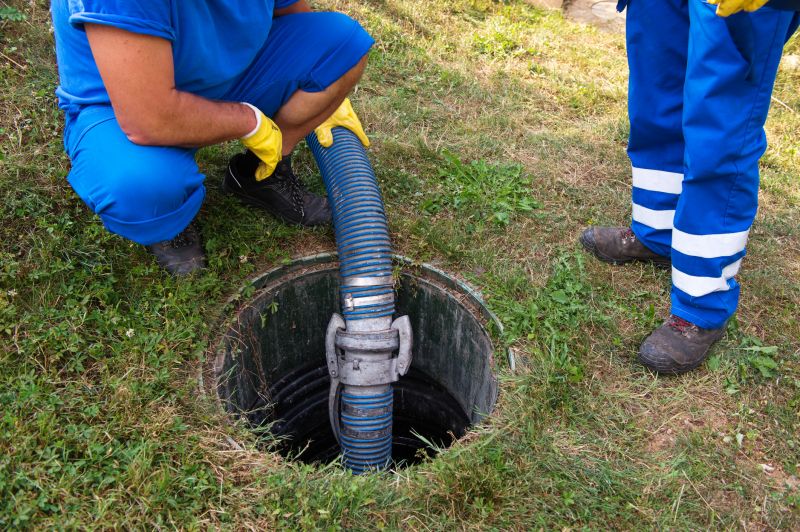
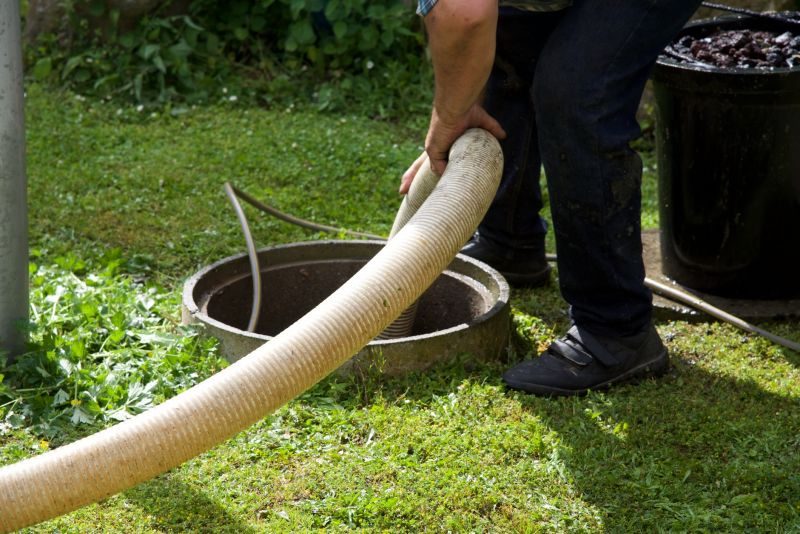
Septic inspection services are commonly sought by property owners in Littleton, CO who are preparing to sell their homes or are planning to purchase a new property. Regular inspections can help identify potential issues early, such as leaks or system failures, which may prevent costly repairs down the line. Additionally, homeowners might schedule inspections after experiencing problems like slow drains or foul odors, ensuring their septic systems are functioning properly and avoiding unexpected breakdowns.
Property owners in Littleton may also look for septic inspection services when their property is due for routine maintenance or if they’ve noticed signs of system distress. Septic systems that haven’t been checked in a while could develop issues that compromise their effectiveness. Local contractors can provide the necessary assessments to help maintain the system’s health, ensuring it continues to operate smoothly and meets local regulations.
What is involved in a septic inspection? A septic inspection typically includes assessing the condition of the septic tank, checking for signs of leaks or blockages, and evaluating the drain field to ensure proper function. Local contractors use specialized tools to perform these evaluations effectively.
Why should I schedule a septic inspection before buying a property? Having a septic inspection done before purchasing a property helps identify potential issues that could require costly repairs or replacements, providing peace of mind and helping inform your decision.
How often should septic systems be inspected? It is generally recommended to have septic systems inspected every 3 to 5 years to maintain proper operation and prevent unexpected failures, especially in areas with high usage or older systems.
What signs indicate my septic system might need an inspection? Signs such as slow drains, unpleasant odors, standing water around the septic tank, or backups in plumbing fixtures can indicate the need for a septic inspection by a qualified service provider.
How can local contractors assist with septic inspections? Local service providers can perform thorough inspections, identify potential problems, and recommend necessary maintenance or repairs to keep septic systems functioning properly. Contacting a professional is the best way to ensure your system is in good condition.
Septic System Assessment - Property owners can schedule inspections to evaluate the condition of their septic systems before purchasing a home or after noticing potential issues.
Maintenance Planning - Local contractors can help identify when a septic system needs pumping or repairs to prevent backups and overflows.
System Upgrades - Homeowners planning renovations or additions can have their septic systems inspected to ensure they meet current standards and can handle increased use.
Troubleshooting Problems - If there are signs of slow drains or unpleasant odors, property owners can have local service providers diagnose and address septic system concerns.

If you are thinking about Septic Inspection for a property in Littleton, CO, this guide is meant to help you understand the work, the typical project types, and how different options might fit your plans.
When you are ready, you can use the quote form on this page to share a few details about your project. From there, local pros can review the basics and respond with options that match what you have in mind.



